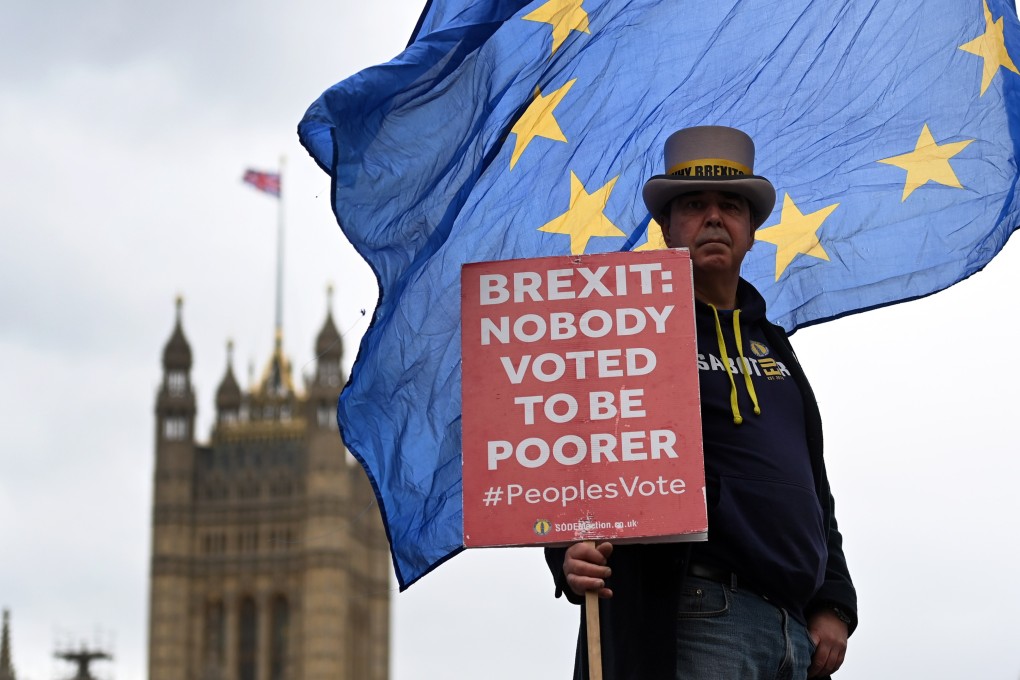Advertisement
Macroscope | Could a return to the EU fix Britain’s broken economy?
- Since leaving the European Union, the UK has been contending with slowed growth, reduced trade and a weakened pound, made worse by high energy costs
- But whether rejoining the EU would fix these problems, and whether the bloc would take Britain back in the first place, is far from certain
Reading Time:3 minutes
Why you can trust SCMP
4

One of life’s golden rules is that you should never say never again. Britain’s departure from the European Union on January 31 in 2020 might have had a note of finality about it, but could the unthinkable really happen and might a future UK government consider rejoining the EU again?
Since the so-called Brexit, UK growth has suffered, Britain’s trade deficit has worsened, public sector finances are in a dire state and the economy is crying out for new regional investment which has dried up from the EU.
In hindsight, Brexit looks like it was a bad mistake for many Britons, with recent polls suggesting a majority of voters would think twice about jumping ship from Europe if offered the opportunity to vote again.
Advertisement
With the next general election less than two years away and the UK economy slipping down the global performance tables, Britain’s return to the EU’s ranks may become a burning issue for voters in the not-too-distant future.
For the current Eurosceptic Conservative government, a return to Europe would be out of the question. Labour, Britain’s main opposition party, currently leading the government by around 20 per cent in the opinion polls, might have ruled it out as a major policy plank at the next election, but that could change if it wins office, especially if the economy needs urgent help and voters are looking for salvation.
Advertisement
Right now, the outlook is bleak with the UK already likely to have fallen into recession in the second half of 2022, as the economy continues to struggle under the cost-of-living crisis, continued fallout from the Covid pandemic and the drag posed by Brexit over the last few years. The odds are that the recession will spill over into 2023 and last for an extended period. It could turn into Britain’s longest recession for a century.
Advertisement
Select Voice
Choose your listening speed
Get through articles 2x faster
1.25x
250 WPM
Slow
Average
Fast
1.25x
